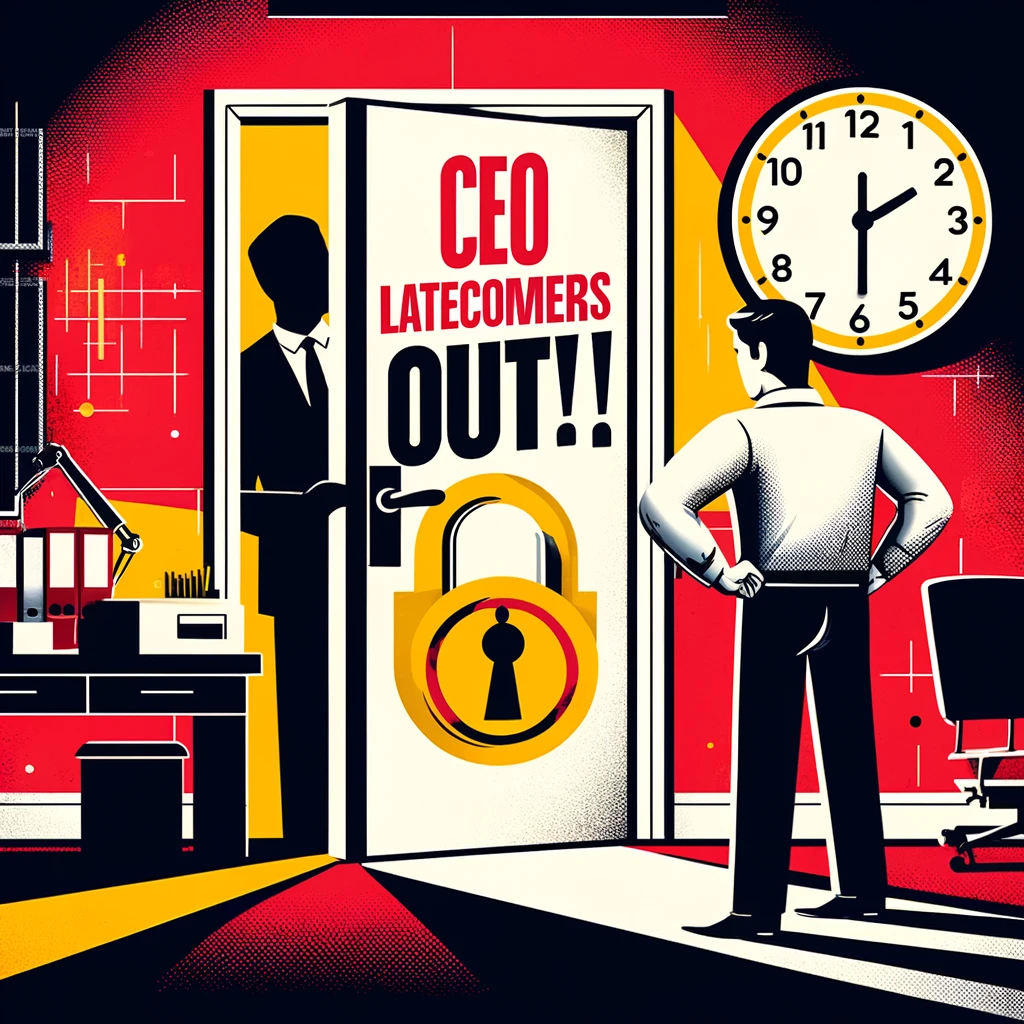Punctuality is a fundamental aspect of professionalism in the workplace. A recent incident where a CEO locked the office doors at noon to teach employees a lesson about punctuality has sparked a debate on workplace discipline and management styles. While some applaud the CEO’s firm stance, others argue that such actions might be extreme. In this blog, we analyze this controversial decision, its impact, and whether it’s an effective way to enforce punctuality.
The Incident: What Happened?
According to reports, the CEO of a reputed company took a drastic step to curb late arrivals. On a specific day, employees who arrived after noon found the office doors locked. These latecomers had to wait outside until the CEO personally addressed them with a stern lecture on punctuality and its importance in maintaining workplace efficiency.
Why Did the CEO Take This Step?
There could be several reasons why the CEO resorted to such an extreme measure:
- Discipline Enforcement: Consistent tardiness can disrupt workflow and affect overall productivity.
- Setting an Example: A strict approach might serve as a wake-up call for employees who habitually arrive late.
- Maintaining Company Culture: Timeliness is a key factor in fostering a disciplined and professional work environment.
- Employee Accountability: This action could push employees to take their responsibilities more seriously.
The Impact on Employees and Workplace Culture
Positive Aspects:
- Increased Awareness: Employees may become more conscious about arriving on time.
- Higher Productivity: If punctuality improves, workflow and efficiency may also see a boost.
- Respect for Company Policies: Employees might take punctuality rules more seriously in the future.
Negative Aspects:
- Employee Morale: Such a strict approach might demotivate employees, leading to resentment.
- Trust Issues: Some employees may feel humiliated, impacting their loyalty to the company.
- Legal & Ethical Concerns: Depending on the country’s labor laws, locking out employees could be seen as a violation of worker rights.
Is This an Effective Leadership Strategy?
While punctuality is critical in the workplace, enforcing it through extreme measures might not be the best approach. Alternative strategies include:
- Flexible Work Hours: Providing some flexibility can boost morale and maintain efficiency.
- Incentivizing Punctuality: Rewarding employees who consistently arrive on time can be a positive motivator.
- Clear Communication: Instead of harsh measures, companies can conduct regular meetings emphasizing the importance of punctuality.
- Progressive Discipline: A step-by-step approach, starting with warnings and moving to penalties, may be more effective than sudden strict actions.
The CEO’s decision to lock office doors as a lesson on punctuality is undoubtedly a bold move, but it also raises questions about workplace ethics and employee treatment. While punctuality is essential, enforcing it through fear rather than motivation could backfire. Companies should consider a balanced approach that promotes discipline while maintaining a positive work environment.
What’s Your Opinion?
Do you think the CEO’s decision was justified? Would you support such measures in your workplace? Share your thoughts in the comments below!

